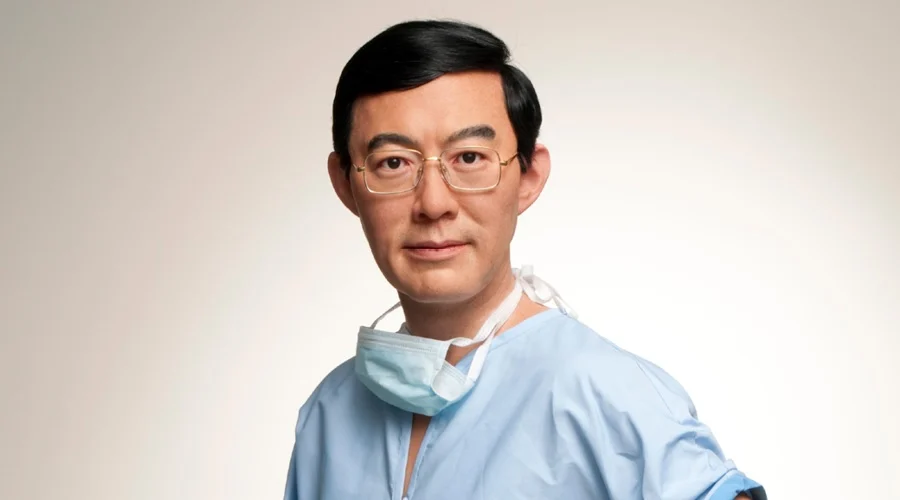Dr. Victor Chang: A Pioneer in Cardiac Surgery: His Life and Legacy

Renowned cardiac surgeon Dr. Victor Chang revolutionized the industry with his groundbreaking work. Born in Shanghai and raised in Australia, he rose to fame in medicine for inventing prosthetic heart valves and pioneering heart transplant procedures. Among his many notable accomplishments, he founded Australia’s national heart transplant program. Beyond his remarkable surgical accomplishments, Dr. Chang’s legacy continues to inspire future generations of surgeons and has dramatically enhanced cardiac patient care globally. He remains a legendary figure in medical history due to the lasting impact of his life and work on heart surgery and research.
Overview
- Renowned for his innovative work in heart transplantation and valve replacement techniques, Dr. Victor Chang stood out as a groundbreaking cardiac surgeon. His ground-breaking methods revolutionized the discipline by improving both the success and accessibility of complicated heart procedures, thereby changing the lives of countless people worldwide.
- Beyond his surgical work, Dr. Chang significantly influenced contemporary medicine. He combined professional brilliance with compassionate patient care, playing a key role in establishing comprehensive cardiac care. His legacy continues to set high standards for future medical developments, influencing research and practices in the field of cardiac health.
Childhood and Schooling
- On November 21, 1936, in Shanghai, China, Dr. Victor Chang was born. During his early years, his family relocated to Australia and then Hong Kong. Cultural shifts during these formative years shaped his perspective and flexibility, two qualities that would later come to define his medical profession.
- Chang’s academic career started at Christian Brothers’ High School in Australia. Academically gifted, he studied medicine at the University of Sydney, where he graduated in 1962. His medical education, especially in surgery, prepared him for his ground-breaking work in cardiac surgery later on.
- Chang’s early life was influenced by his family’s commitment to education and community duty. He was greatly affected by his mother’s breast cancer death, which led him to pursue a profession in medicine. His intellectual curiosity and this personal loss drove him to seek a career in patient care and medical innovation.
Professional Background and Principal Achievements
- Following graduating in 1962, Dr. Victor Chang started his medical career at St. Vincent’s Hospital in Sydney. He continued his education in the US and England, focusing on cardiothoracic surgery. When he returned to Australia in 1972, he became the head of St. Vincent’s Hospital’s cardiac surgery unit, which launched his groundbreaking surgical career.
- Dr. Chang played a key role in Australia’s pioneering of heart transplantation. In 1984, he accomplished a historic milestone by performing the first successful heart transplant in the nation. In addition to saving many lives, his research in this field catapulted Australia to the forefront of the world’s heart transplantation field.
- He made groundbreaking advances and innovations in the replacement of prosthetic heart valves. The longevity and functionality of prosthetic heart valves were improved by Dr. Chang’s research and use of novel materials and designs in heart valve surgery, greatly improving patient outcomes and quality of life.
- The establishment of an Australian national heart transplant program was made possible in large part by Dr. Chang’s assistance. He promoted the initiative, guaranteeing accessibility and good quality of care. Australia’s cardiac healthcare system has been built around this initiative, which has served as a model for other nations.
Notable Successes
- In 1984, Dr. Victor Chang achieved a significant milestone in his career by performing the first successful heart transplant in Australia. This groundbreaking procedure not only saved a life but also marked a new chapter in Australian medical history, showcasing the nation’s expertise in cutting-edge cardiac treatment.
- Dr. Chang earned recognition for creating innovative surgical instruments and methods, particularly in valve replacement and heart transplantation. His efforts significantly enhanced surgical accuracy and patient safety, setting new standards in heart surgery and influencing practices worldwide.
- Dr. Chang received multiple awards and recognitions for his outstanding contributions to medicine, including the Companion of the Order of Australia, honoring his contributions, particularly in heart transplantation. His achievements testify to his influence and legacy in the field of cardiac surgery.
Study and Instruction
- A prominent member of the medical community, Dr. Victor Chang concentrated his research efforts on improving heart surgery. His work included creating novel heart valve replacements, refining heart transplant protocols, and investigating new surgical techniques. In addition to advancing the field, this research also saved many lives.
- Dr. Chang was committed to instructing and guiding upcoming surgeons, even beyond his accomplishments in surgery. He enthusiastically shared his expertise at St. Vincent’s Hospital as well as at several academic positions. His dedication to teaching influenced the development of a new wave of proficient cardiac surgeons.
- By disseminating his in-depth research and conclusions in cardiac surgery, Dr. Chang made a substantial contribution to medical publications and literature. His publications in esteemed medical journals and papers have contributed significantly to the global dissemination of innovations and expertise in cardiac surgery.
History and Significance
- The Victor Chang Cardiac Research Institute in Sydney is a testament to Dr. Victor Chang’s lasting legacy. This institute, which was established in 1994, is a monument to his unwavering commitment to cardiac research and innovation, carrying out his lifelong objective to improve our knowledge of and access to heart disease treatments.
- Dr. Chang’s work has had a significant long-term influence on heart surgery and patient care. His discoveries in valve replacement and heart transplantation have enhanced many people’s quality of life and saved countless lives. His methods and approaches still serve as the cornerstone of modern heart surgery.
- Dr. Chang continues to inspire researchers and medical professionals even after his death. His innovative mindset and pioneering spirit inspire continuous research and breakthroughs in heart surgery and treatment, setting an example for present and future generations in the medical industry.
Difficulties and Debates
- Throughout his career, Dr. Victor Chang encountered several difficulties, such as the moral quandaries surrounding organ donation, the medical intricacies of heart surgery, and the constraints of the time regarding technology. Notwithstanding the dangers and uncertainties involved, overcoming these challenges requires creative problem-solving and a dedication to improving cardiac care.
- Despite being revolutionary, Dr. Chang’s work was not without criticism. The ethics of organ transplantation, particularly recipient prioritization and donor selection, have frequently been the subject of public discourse. Furthermore, the high-stakes nature of cardiac surgery and the developing knowledge of post-operative care created professional debates that challenged the conventional medical practices of the day.
Conclusion:
In summary, Dr. Victor Chang’s significant and varied legacy in cardiac surgery has many facets. He overcame major obstacles in his field, both technological and ethical, and steadfastly resolved conflicts. His groundbreaking work significantly impacts medical science, particularly in heart transplantation and prosthetic heart valve creation. Chang’s work not only improved cardiac treatment but also sparked essential debates about medical ethics and procedures. Despite his untimely death, the ongoing work and research at the Victor Chang Cardiac Research Institute keep his memory alive, motivating future generations to continue pursuing medical innovation and excellence.
FAQs
Who was Dr. Victor Chang?
Chinese-Australian cardiac surgeon Dr. Victor Chang was well-known for his groundbreaking work in the development of artificial heart valves and cardiac transplantation.
What major achievements to medicine did Dr. Chang make?
The development of an artificial heart valve and improvements in heart transplant procedures are two of his most important accomplishments.
What obstacles did Dr. Chang have to overcome in his work?
Dr. Chang had to deal with issues related to organ transplant ethics, cardiac surgery technology constraints, and the medical complexity of heart transplant procedures.
Were there any disputes surrounding the research done by Dr. Chang?
Indeed, the ethical concerns surrounding organ transplantation and the changing methods of heart surgery were at the center of the disputes.
What influence did Dr. Chang have on the heart surgery community?
He had a major impact on the creation of new surgical instruments and procedures as well as the success rate of heart transplants.





